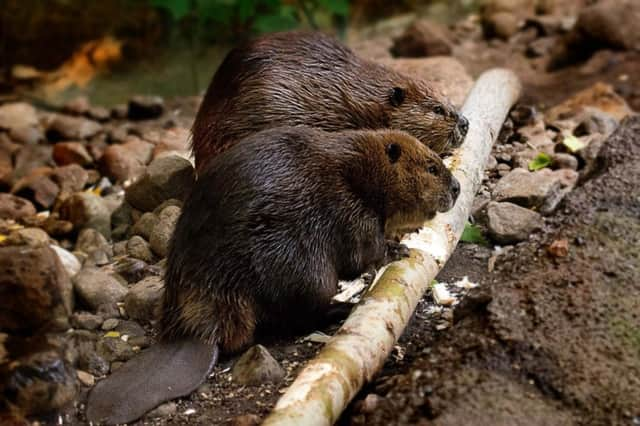Beavers bred in captivity pair up in Scottish conservation success story


They were released as part of the Knapdale Beavers Reinforcement Project in Argyll, an effort to strengthen the colony established there between 2009 and 2014 by the Scottish Beaver Trial.
This trial successfully introduced 16 Eurasian beavers to the River Tay in Knapdale Forest and led to the Scottish government formally recognising the Eurasian beaver as a native species in 2016.
Advertisement
Hide AdAdvertisement
Hide AdBeavers were once common across Scotland, but by the 16th century had been hunted to extinction for their fur and a glandular oil used in some medicines. Returning beavers to the area is the first formal attempt to reintroduce mammals to the UK.
The video footage shows Alba, a female from the Royal Zoological Society of Scotland (RZSS) Highland Wildlife Park, with Harris, a male born at the Wildwood Trust in Kent.
The pair have been living on the same small lochan in Argyll for several months. Alba was released first in October, and Harris was introduced to the same area in March as a potential mate. However, until now the two had not been seen together.
Along with Alba and Harris, up to 26 other beavers are being released in Knapdale over a three-year period as part of the Knapdale Beavers Reinforcement Project.
Ben Harrower, RZSS conservation programme manager, said: “It’s fantastic to see Alba and Harris getting along so well and I have high hopes that they will breed and produce beaver kits in the future.
“Alba established herself on the lochan after being released in October and, after a health and genetic screening, Harris was deemed to be a potential suitor. We released him in the same location in March and waited to see if they would pair up.
“Post-release monitoring footage showed both beavers doing well, but for months they were not seen together.
“It was only in late June, when Scottish Beavers contractors from the Heart of Argyll Wildlife Association were going through imagery from the lochan, that a video clip was found with them side by side and grooming each other, a great sign that Alba has accepted Harris as a mate.”
Advertisement
Hide AdAdvertisement
Hide AdSusan Davies, Scottish Wildlife Trust director of conservation, said: ‘As nature’s engineers, beavers can bring huge benefits to an area, from flood prevention and improved water quality to supporting the local economy through increased tourism.’
According to the RZSS, beavers can also help to improve conditions for other species such as otters, water voles, fish and dragonflies.
The beavers will continue to be monitored by the Scottish Wildlife Trust, the RZSS and Forest Enterprise Scotland, in partnership with Scottish Natural Heritage.